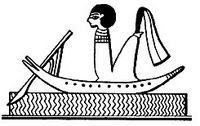Leah Campbell Badertscher blogs about her contemplation of beauty in
"WHY Beauty?" and shares some sources she finds helpful in this exploration. She begins with her reaction to:
"In a world where the soul is neglected, beauty is placed last on its list of priorities."
— Thomas Moore, Care of the Soul
Badertscher also writes about the late John O'Donohue's radio presentation,
"The Inner Landscape of Beauty". She writes, "He also discussed beauty as not necessarily being something that would be conventionally, superficially defined as 'beautiful' as in 'pretty' (although those things are not necessarily excluded), but that it does have the quality of being so captivating as to be arresting. (By the way, I absolutely love that word,
arresting — it's so, well —
arresting.) This closed another gap in understanding for me."
She ends the post with a description of Rumi's poetry: "I started reading a new volume of Rumi poems last night and in the introduction it is told of how representatives from all over the world and from all religions came to his funeral. When asked about why they came, they answered, 'He deepens us wherever we are.' This touched me deeply, because I realize how, hundreds of years later, his work deepens me — and countless others — as well. And that is far beyond being a sufficient answer to 'Why? Why Beauty? Why care for the soul?' To deepen. To deepen ourselves, to deepen one another."
Labels: Beauty, Care of the Soul





